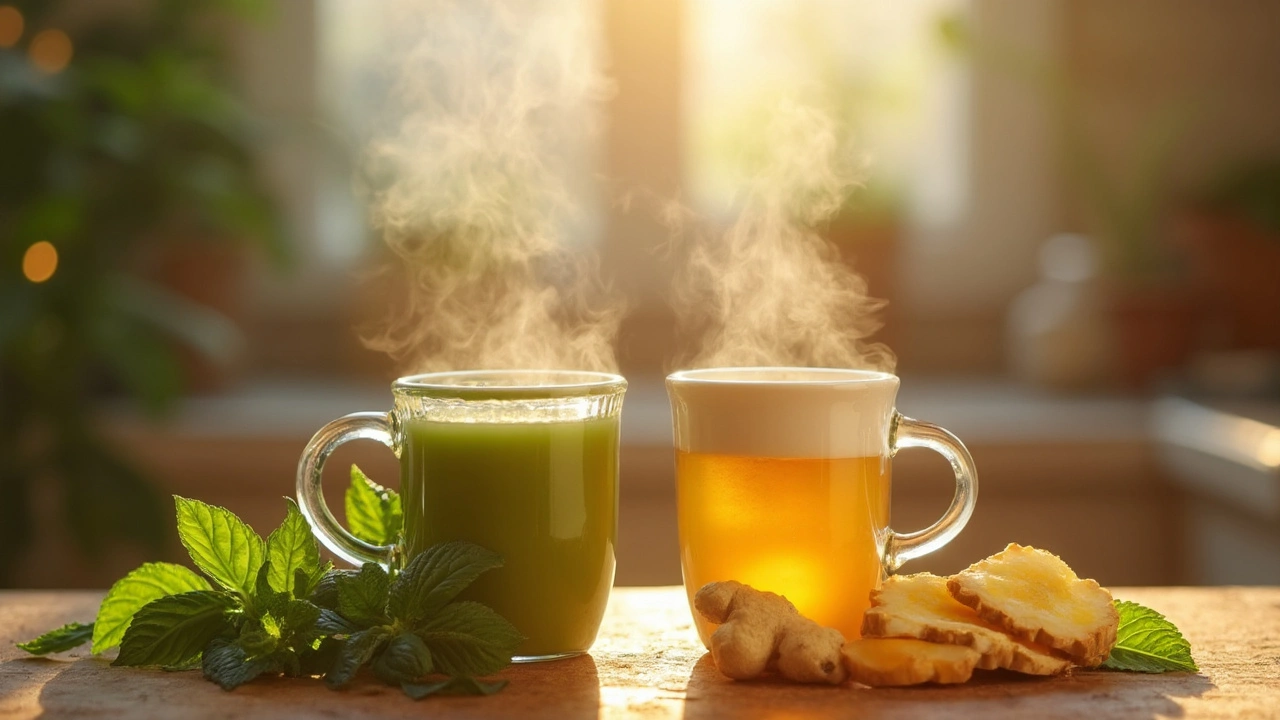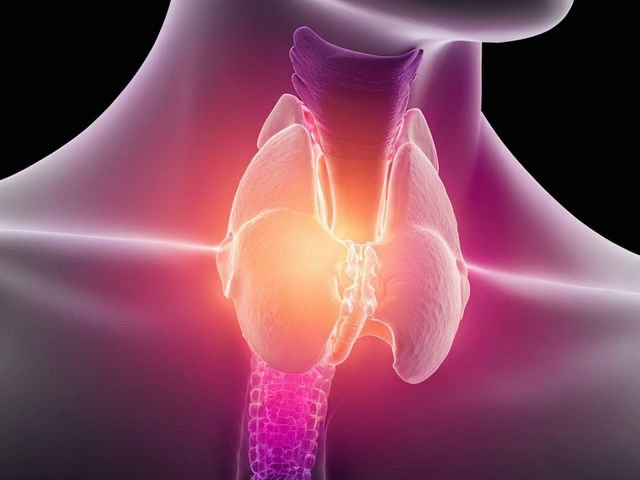Digestive Teas: Best Herbal Brews for a Happy Gut
If your stomach feels heavy after a big meal, a warm cup of herbal tea can be a quick fix. Unlike coffee or soda, these teas are designed to soothe, reduce bloating, and support the whole digestive system. All you need is a few simple ingredients and a few minutes of steeping.
Why Digestive Teas Work
Most digestive teas combine herbs that contain natural compounds called flavonoids and essential oils. These help relax the intestinal muscles, smooth out cramping, and encourage the flow of bile and enzymes. Think of it as giving your gut a gentle massage from the inside.
Top Herbs to Add to Your Cup
Ginger – Fresh or dried ginger roots are a classic. They speed up stomach emptying and calm nausea. Peppermint – The menthol in peppermint relaxes the smooth muscle of the gut, easing gas and bloating. Fennel seeds – These tiny seeds have an anise‑like flavor and are great for reducing gas after beans or cabbage. Chamomile – A soothing flower that reduces inflammation and helps you unwind after a stressful day. Lemon balm – Adds a bright citrus note while easing indigestion and anxiety.
Mix any two or three of these herbs, pour hot water over them, and let them steep for 5‑7 minutes. You can sweeten with a touch of honey if you like, but keep it light so the herbs stay effective.
Want a ready‑made blend? Look for pre‑packaged “digestive tea” packets at health stores. Check the label to make sure they contain the herbs listed above and avoid added caffeine, which can sometimes irritate the stomach.
Timing matters, too. Sip a cup about 30 minutes before a big meal to prime your digestive enzymes, or enjoy one after eating to calm any post‑meal discomfort. Consistency is key – drinking a digestive tea daily can help maintain regularity and keep occasional heartburn at bay.
If you have a specific condition like acid reflux, choose milder herbs like chamomile or licorice root (in DGL form) and skip peppermint, which can sometimes relax the lower esophageal sphincter. Always listen to your body and adjust the blend to what feels best.
Finally, remember that tea is just one piece of the puzzle. Pair it with a balanced diet, adequate hydration, and mindful eating habits for the best gut health results. A cup of digestive tea is an easy, tasty habit that fits right into a busy lifestyle while giving your stomach a natural boost.
Peppermint vs Ginger Tea: Which Herbal Tea Calms Indigestion Fast?
Peppermint tea and ginger tea get a lot of hype as natural remedies for indigestion, but which one really works faster? This in-depth article unpacks how each tea eases digestive woes, dives into the science behind their soothing effects, and shares tips to get the most out of your cup. It highlights clinical studies, interesting facts, and practical advice for anyone struggling with stomach troubles. Curious about ingredients, possible side effects, or the best way to brew each tea? You'll find it all right here.





